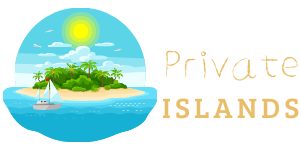Who doesn’t dream of owning their own private island at some point in their life? Imagine glamorously stepping off of a seaplane onto a private beach as stewards rush to grab your luggage and white-gloved butlers present you with a chilled glass of Champagne. But while these visions of a luxury vacation may be romantic, there’s typically more behind the purchase and operation of a private island than meets the eye.
Whether purchased for personal residences, luxury resorts or multigenerational family compound, private islands provide the ultimate retreat in the world’s most remote landscapes. They’re often exclusive, surrounded by delicate or endangered flora and fauna, and can be found in pristine tropical locales, remote volcanic landscapes or even snowy mountaintops. But while these secluded escapes have a way of transforming owners and visitors into true stewards of the environment, they also come with their own set of challenges that need to be carefully considered.
The most obvious issue is price: Island purchases tend to be more expensive than most other real estate, especially if they’re located in prime travel destinations. While it’s no secret that some of the world’s top billionaires—including Richard Branson, Johnny Depp and Larry Ellison—own their own slice of paradise, there’s still a limited number of people who can afford and want to become island homeowners, which limits the market for buyers.
In addition to the financial hurdles, private island ownership comes with many of the same challenges as any other high-end property—from taxes to insurance and maintenance to upkeep, these luxury assets can quickly add up. But while the cost of a private island may be prohibitive for some, there’s a growing niche of people who are willing to make the investment and reap the benefits.
Despite the recent economic struggles, the luxury island market is booming. According to Jacques Menahem, founder of French Polynesia Sotheby’s International Realty, the number of private islands inquiries he receives daily has doubled since the beginning of March. And that’s not just in warmer climates where private islands are most in demand; the market is also hotting up in some of the world’s farthest-flung archipelagoes.
But while there are plenty of opportunities to buy and rent a private island, some buyers are opting to stay away from the marketplace altogether and take advantage of the many privately-owned islands that have opened up in recent years. From secluded golf courses to eco-friendly and family-friendly resorts, these islands prove that luxury and sustainability can go hand in hand. Click through the gallery to see the best private islands that are available for sale or rent.
